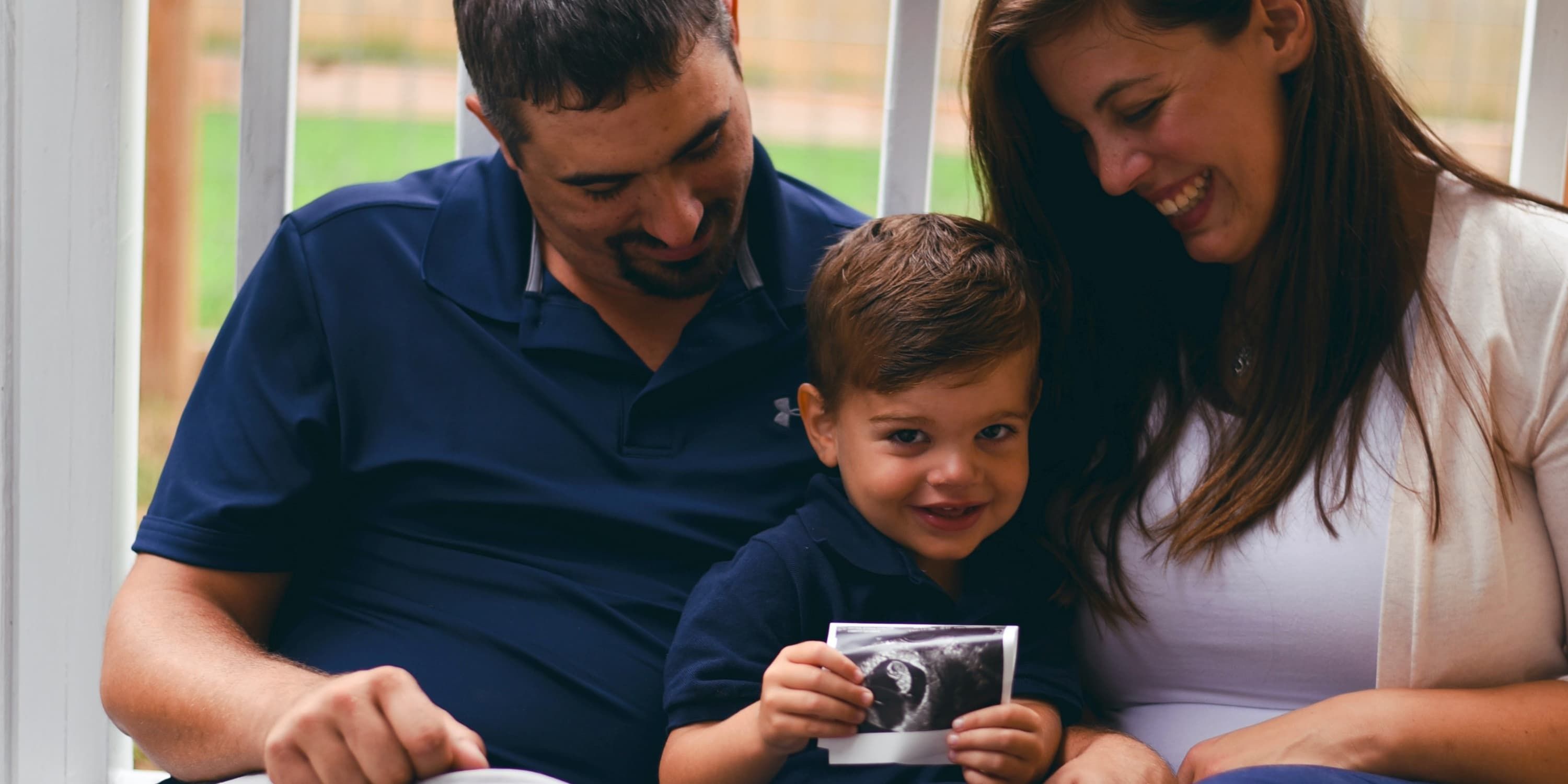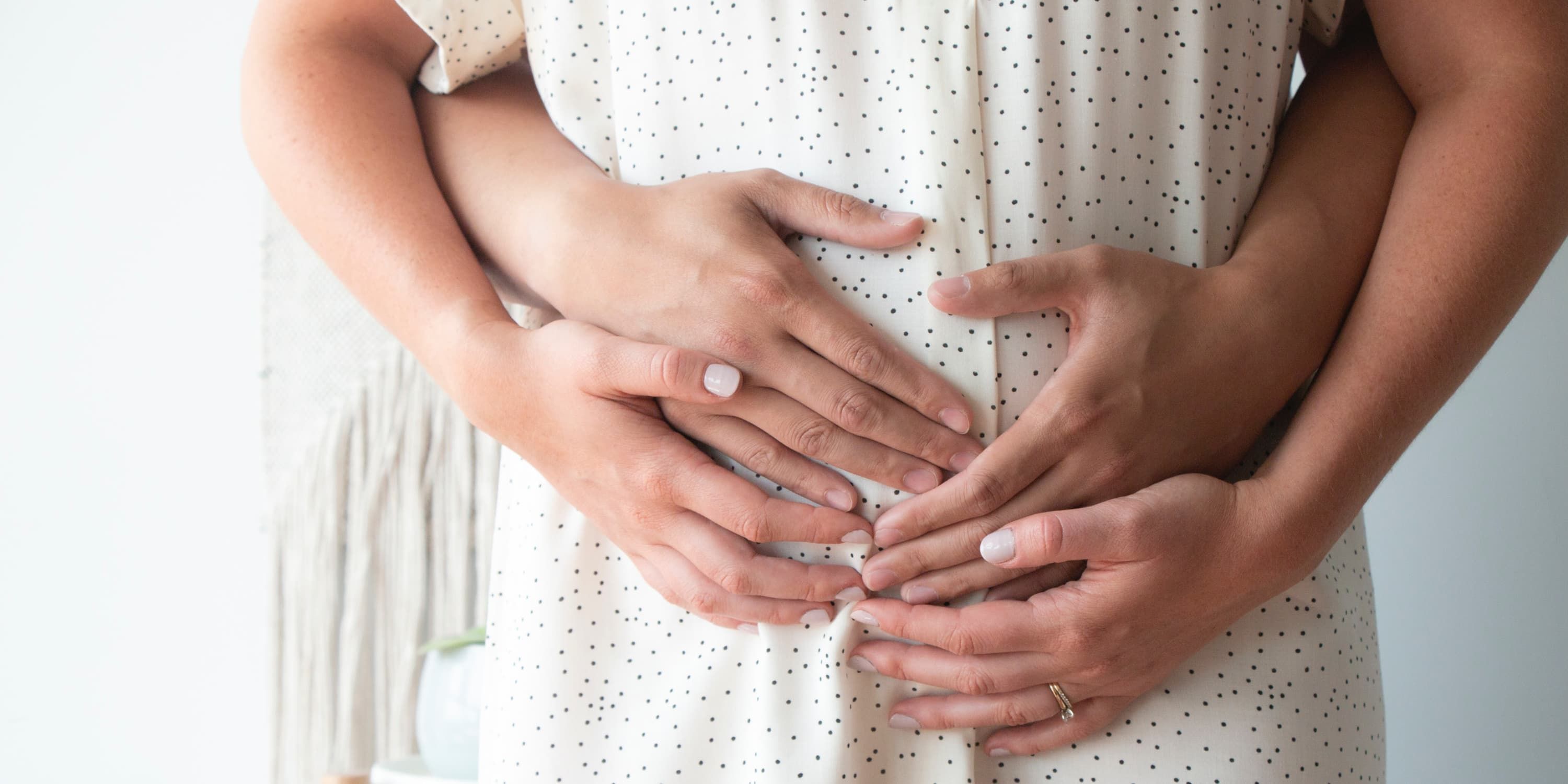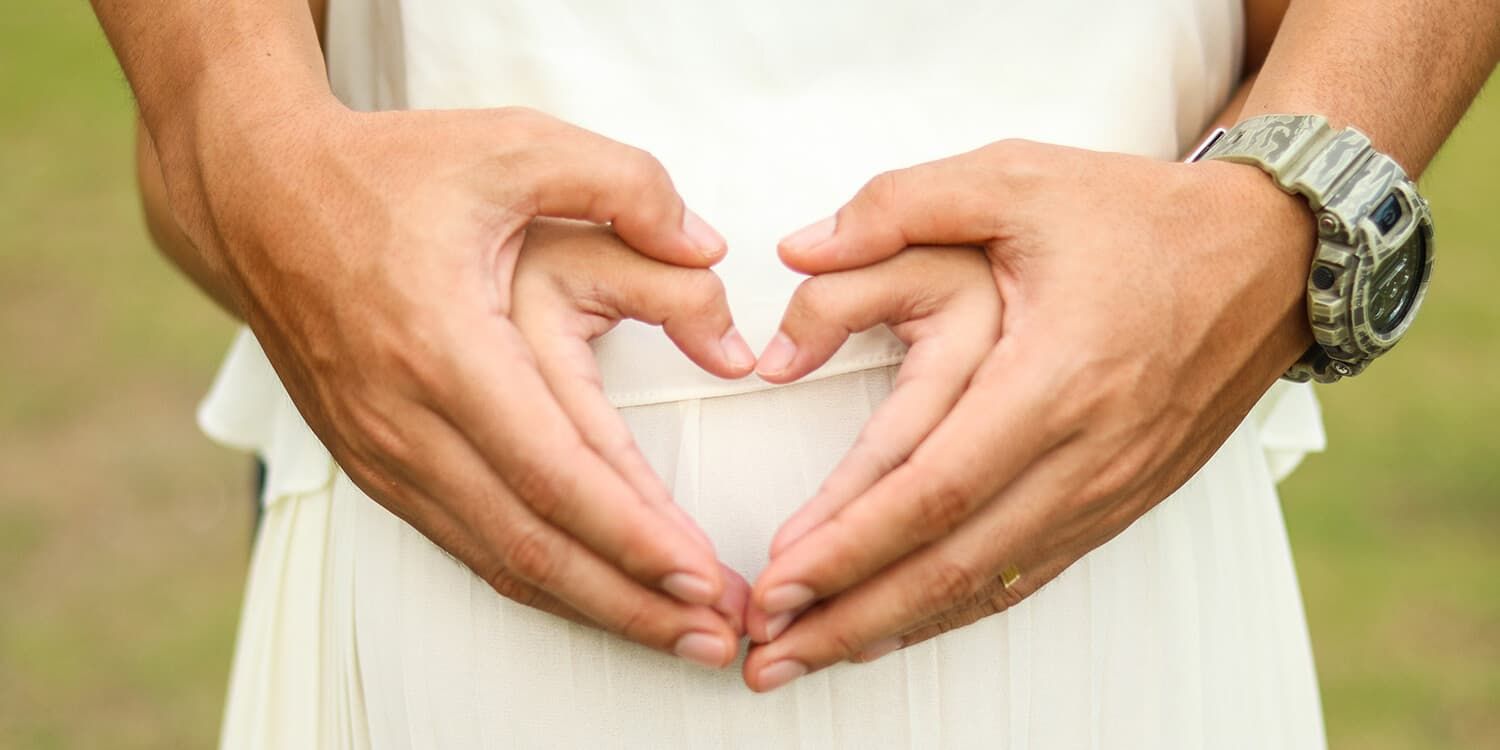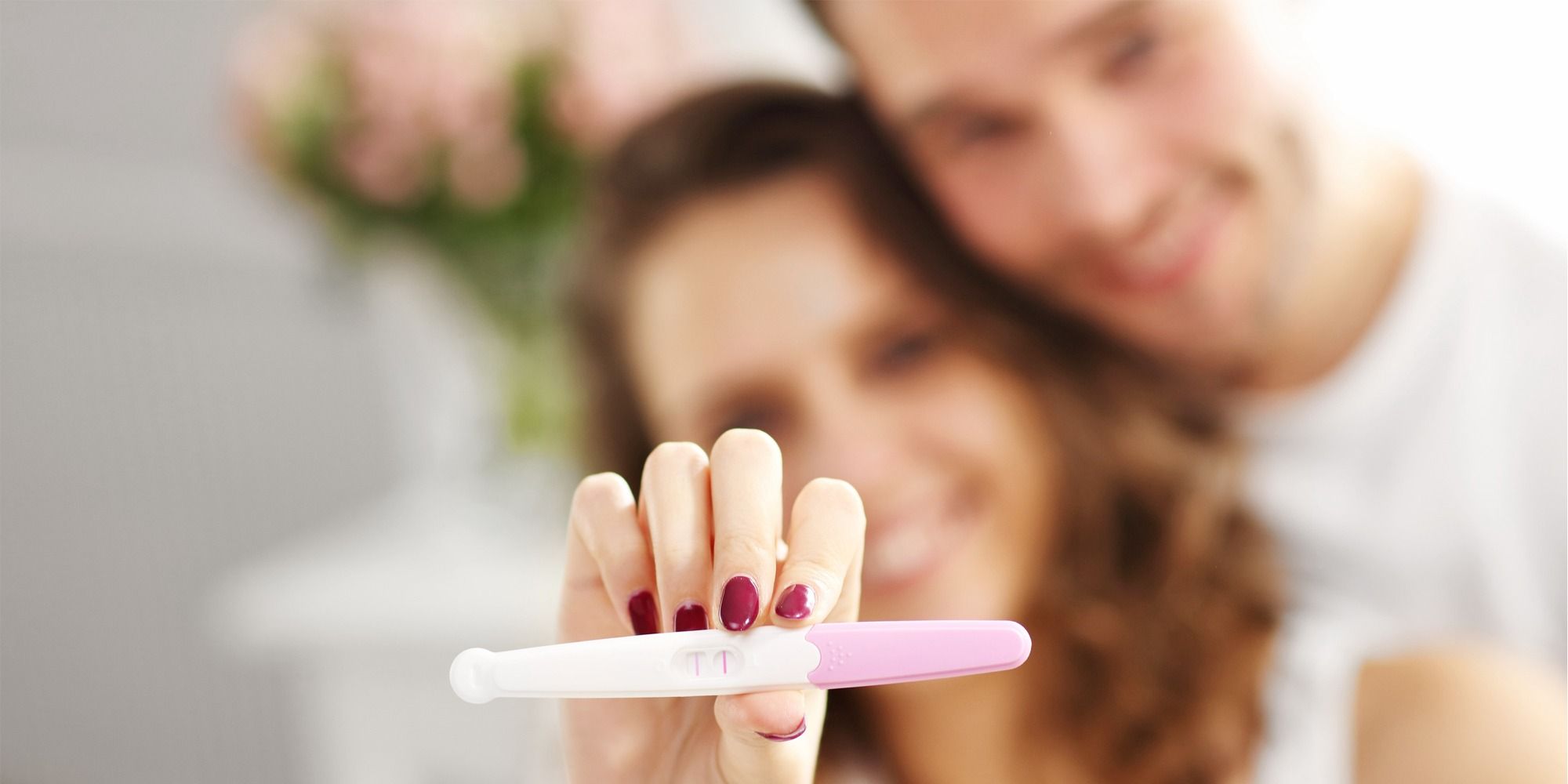A big head and arms that look like paddles – your baby has grown a lot, and so has your womb. Although there is not much to see, a lot is happening inside your body at 8 weeks pregnant. Read on to discover what is going on and what you can expect to hear at your next doctor’s visit.
What's Going On in Your Belly Right Now?
Many pregnant women have their first appointment with their doctor at this point, and are able to see what is going on inside their belly: The amniotic cavity is visible, the heartbeat can be heard clearly, and the little alien may be paddling around with its tiny arms.
Your baby is now about the size of a raspberry.
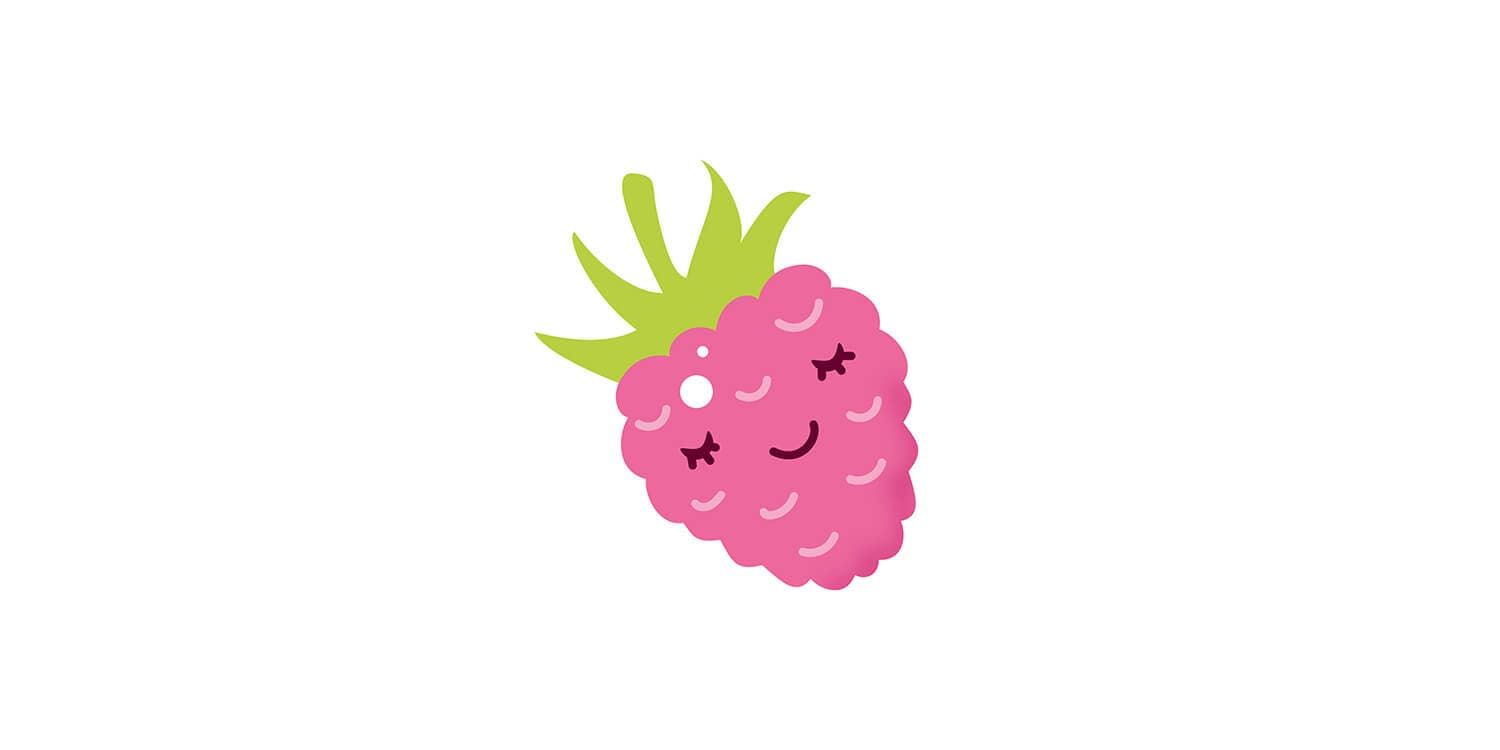
Its head is still disproportionately large compared to its body. The focus of your baby's development lies firmly on its top half right now: The arms are growing slightly faster than the legs. The jaw is discernible with its teeth already in place, and cartilage is starting to form in place of future bones.
The placenta is also gradually taking over supplying the baby, with the yolk sac now shrinking. Blood vessels in the umbilical cord are delivering nutrients and oxygen to the baby and removing metabolic waste.
The embryo is now roughly 9-16 mm long.
How Do You Feel at 8 Weeks Pregnant?
The uterus has now doubled in size and may have started to press on your bladder.
Have you been to the doctor for a checkup and heard the sound of the tiny heartbeat? You have every reason to rejoice: Once the heartbeat is audible, the risk of a miscarriage drops to 10%!
Why do I have blood and urine samples taken and tested during pregnancy?
Expectant mothers often have to give blood samples at prenatal check-ups. These tests are used to determine your blood group, and to check whether you have antibodies that protect against certain diseases. Certain tests can also indicate existing diseases.
Your urine will be tested for sugar, protein, and bacteria. The aim of these tests is to identify any problems at an early stage. These may include pregnancy diabetes, pre-eclampsia (pregnancy toxemia), or infections.
Why are antibodies against toxoplasmosis helpful?
Among the possible antibodies in your blood, those that provide immunity to toxoplasmosis are particularly interesting. These pathogens can be transmitted through cat feces, garden soil, unwashed vegetables, as well as raw meat and fish, and they can cause severe developmental disorders in the baby. For the pregnant woman, the illness usually seems to be no worse than a mild cold. If you are toxoplasmosis negative (i.e., you have not yet had any contact with the pathogen), you must therefore take particular care when eating and preparing food. If you are toxoplasmosis positive (i.e., you have antibodies against the pathogen), you can take a more relaxed approach – although you still need to be careful to avoid salmonella and listeria.
What is now important when it comes to nutrition during pregnancy?
You should not eat greater quantities of food during early pregnancy, but you should perhaps adjust your diet slightly. The body needs more protein, vitamins, and minerals for its "building work" – it is best to seek medical advice on what you should include in your diet, or to find out which dietary supplement is best for you. You should avoid large amounts of sugar and other simple carbohydrates, because they can cause your blood sugar level to rise quickly. This can have an adverse effect on your circulation and may cause nausea.
Food can also transmit pathogens. It is advisable to talk to your doctor to find out what things in particular you need to think about within your environment. Good hygiene in the kitchen is recommended as a general rule. It is also recommended to avoid raw meat and fish, raw eggs, raw sausage, and any products made from raw milk. Can you spot a pattern there? That's right: Pregnant women should avoid many things that have not been thoroughly heated or pasteurized. Fruit and vegetables must be washed thoroughly.
Photo Credit: Unsplash


